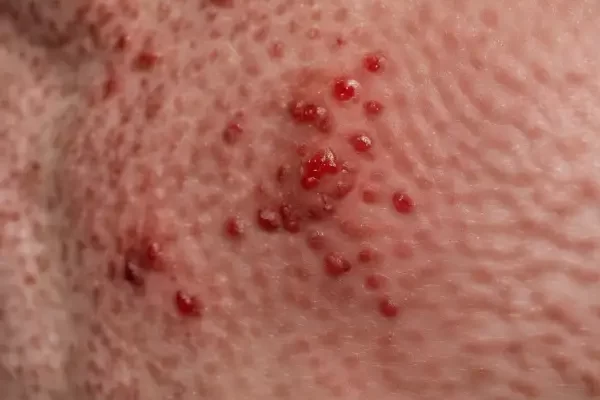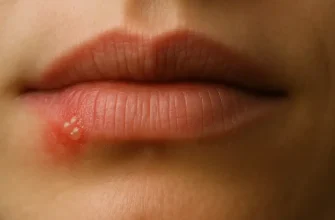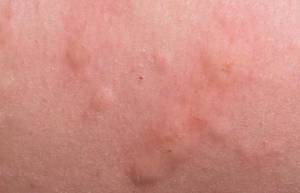Experiencing red, itchy bumps throughout your body can be bothersome and unpleasant. These bumps, commonly referred to as a rash, can originate from different reasons and manifest differently amongst individuals. Educating yourself on the possible causes of this condition can assist in identifying the root issue and finding suitable treatment.
Causes of Red Itchy Bumps All Over Body
Here are some common causes of red itchy bumps all over the body:
- Allergic Reactions: Allergies to certain substances such as certain foods, medications, pollen, or insect bites can trigger an allergic reaction and result in a generalized rash. The body’s immune system responds to these allergens by releasing histamine, which can cause redness, itching, and bumps.
- Contact Dermatitis: Exposure to substances like specific chemicals, metals (like nickel), or plants such as poison ivy or poison oak can result in contact dermatitis. This condition manifests as red, itchy bumps in the areas where the skin has been in contact with the irritant.
- Infections: Rashes can appear as a result of infections caused by bacteria, viruses, or fungi. For example, viral infections like measles or chickenpox typically begin with red, irritating bumps that gradually turn into blisters filled with fluid.
- Eczema: Eczema, also referred to as atopic dermatitis, is a persistent skin condition marked by dry and itchy skin as well as a rash that has the potential to occur on any part of the body. Exacerbations of eczema can be instigated by various elements such as stress, allergies, or contact with specific irritants.
- Insect Bites: Mosquitoes, bedbugs, fleas, and other insects can cause localized or widespread allergic reactions, resulting in itchy bumps all over the body. Scratching can worsen the rash and lead to secondary infections.
- Heat Rash: When sweat ducts become blocked, heat rash or prickly heat can occur. This condition often appears as clusters of red, itchy bumps, particularly in areas where clothes fit tightly or friction is high, such as the neck, back, or groin.
- Drug Reactions: Certain medications, such as antibiotics, anticonvulsants, or nonsteroidal anti-inflammatory drugs, can trigger adverse reactions that manifest as a rash. These reactions can range from mild to severe and may require immediate medical attention.
It is essential to consult a healthcare professional to accurately diagnose the cause of your red, itchy bumps. They will consider your symptoms, medical history, and may conduct tests if necessary. Identifying the underlying cause is crucial for appropriate treatment and prevention of further complications.
How to Diagnose Red Itchy Bumps All Over the Body
Experiencing red, itchy bumps all over the body can be both uncomfortable and frustrating. While there are several possible causes for these symptoms, diagnosing the underlying issue correctly is crucial in order to find the appropriate treatment. In this post, we will discuss common causes and helpful tips for diagnosing red, itchy bumps all over the body.
- Evaluate the Appearance and Distribution of the Bumps:The first step in diagnosing red, itchy bumps is to closely examine their appearance. Take note of their color, size, shape, and whether they are fluid-filled, scaly, or have a dry appearance. Assess their distribution as well, determining if they are localized to specific areas or spread across the entire body.
- Consider Possible Allergic Reactions: Allergic reactions are a common cause of red, itchy bumps all over the body. Think about any recent exposure to potential allergens, such as certain foods, medications, cosmetics, or cleaning products. Look for other accompanying symptoms such as swelling, hives, difficulty breathing, or a sudden onset of symptoms, which may indicate an allergic reaction.
- Rule Out Insect Bites or Stings: Insect bites or stings can often result in red, itchy bumps. Pay attention to any recent encounters with insects or outdoor activities that may have exposed you to bites. Common bite marks are often small, red bumps that may be accompanied by localized swelling or a central puncture wound.
- Consider Skin Infections: Various skin infections can cause red, itchy bumps all over the body. These may include conditions such as scabies, shingles, chickenpox, or fungal infections. Monitor for symptoms such as fever, blisters, rash progression, or outbreaks in specific areas of the body.
- Examine for Autoimmune or Dermatological Conditions: Autoimmune conditions like lupus or dermatological conditions such as eczema or psoriasis can cause red, itchy bumps on the body. Note any recurring or chronic skin issues, joint pain, inflammation, or a family history of such conditions.
- Assess General Health and Medications: Certain systemic diseases or medications can manifest with red, itchy bumps all over the body. For example, measles, rubella, or drug side effects may produce these symptoms. Evaluate your overall health and any recent medication changes or new prescriptions.
- See a Healthcare Professional: If you are unable to determine the cause of your red, itchy bumps, it is important to consult a healthcare professional. A dermatologist or allergist can conduct a more thorough examination and order any necessary tests to diagnose the underlying issue accurately.
Remember, self-diagnosis may not always be accurate, and seeking professional medical advice is crucial for an appropriate diagnosis and treatment plan.
Treating Red Itchy Bumps All Over the Body
We will explore various treatment methods to alleviate the redness, itching, and discomfort associated with these bumps.
- Topical Treatments:
a. Calamine lotion: The calming attributes of this substance can alleviate itchiness and promote the drying of the protrusions.
b. Hydrocortisone cream: Hydrocortisone creams that can be purchased without a prescription have the ability to decrease swelling and alleviate itching.
c. Antihistamines: Cetirizine or loratadine, which are oral antihistamines, can be beneficial in controlling the itchiness that comes with allergic reactions or hives. - Home Remedies:
a. Cold compress: You can lessen itching and swelling by putting a cold compress or ice pack on the affected regions.
b. Oatmeal bath: Soaking in an oatmeal bath can provide relief by soothing irritated skin.
c. Aloe vera gel: Applying aloe vera gel to the affected areas can help soothe itching and reduce inflammation. - Avoiding Triggers:
In cases of allergic reactions, it is essential to identify and avoid the allergens that may be triggering the red itchy bumps. This may involve avoiding specific foods, using hypoallergenic products, and minimizing exposure to potential irritants. - Medical Treatments:
If the red itchy bumps persist or worsen despite using topical treatments and home remedies, consult a healthcare professional. They may recommend additional medical treatments, such as:
a. Oral corticosteroids: In severe cases, short-term oral corticosteroids may be prescribed to reduce inflammation and provide relief.
b. Antibiotics or antifungal medications: If an infection is suspected, the healthcare professional may prescribe antibiotics or antifungal medications to clear the underlying infection.
c. Immune system modulators: In some cases of chronic skin conditions, medications that modulate the immune system may be recommended by a healthcare professional.
Effective Tips to Prevent Red Itchy Bumps All Over Your Body
- Regularly moisturize your skin: Dry skin often exacerbates itchiness and irritation, so it’s crucial to keep your skin moisturized. Apply a hypoallergenic, fragrance-free moisturizer immediately after showering or bathing to lock in moisture and help prevent dryness.
- Avoid hot showers: While hot showers may feel relaxing, they can strip away natural oils from your skin and exacerbate itchiness. Opt for lukewarm water instead and limit your shower time to reduce skin dryness.
- Choose gentle, fragrance-free products: Harsh soaps, detergents, and fragranced products can irritate sensitive skin. Opt for mild, hypoallergenic, fragrance-free alternatives that are specifically formulated for sensitive skin to decrease the risk of developing itchy bumps.
- Wear loose-fitting clothing: Tight clothing can trap sweat and irritants against your skin, leading to itchiness and the formation of bumps. Opt for loose-fitting, breathable fabrics such as cotton to allow your skin to breathe and reduce friction.
- Wash new clothes before wearing them: New clothes may contain harsh chemicals or dyes that can irritate your skin. Give them a thorough wash before wearing them to remove any potential irritants and reduce the risk of developing itchy bumps.
- Protect yourself from insect bites: Insect bites can cause red itchy bumps all over the body. When spending time outdoors, use insect repellents, wear long sleeves and pants, and avoid heavily wooded areas to minimize your exposure to biting insects.
- Keep your environment clean: Regularly clean your living space to minimize exposure to dust mites, which can trigger allergic reactions and lead to itchy skin. Vacuum carpets and rugs frequently, wash bedding in hot water, and use allergen-proof covers for your pillows and mattress.
- Avoid scratching: As difficult as it may be, refrain from scratching the itchy bumps, as it can worsen the condition and potentially lead to infections. Instead, try using a cold compress, applying a soothing lotion, or taking an over-the-counter antihistamine to alleviate the itch.
- Manage stress levels: Stress can have a negative impact on your skin, making it more susceptible to irritants and infections. Incorporate stress management techniques such as exercise, meditation, or deep breathing exercises into your daily routine to help maintain healthy skin.
- Stay hydrated: Proper hydration is important for maintaining healthy skin. Drink plenty of water throughout the day to keep your skin hydrated and support its natural protective barrier.
Prevention is key when it comes to red itchy bumps all over your body. By following these 10 effective tips, you can significantly reduce the likelihood of developing these uncomfortable bumps. However, if you experience persistent or worsening symptoms, it’s essential to consult a healthcare professional for a proper diagnosis and treatment plan tailored to your specific needs.









